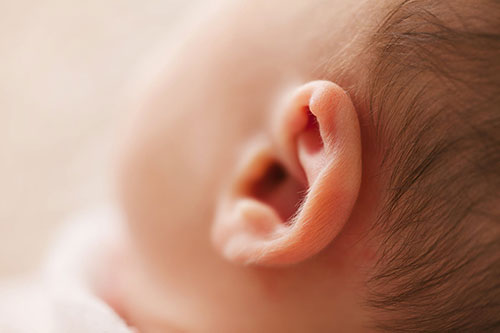Our sense of hearing is a very important part of our lives. Without the ability to listen, communication would become very difficult indeed. New born babies learn to speak by listening to and trying to replicate the sounds around them. It is our duty to take care of our hearing and not neglect any early signs of hearing loss. World Hearing Awareness Day is being observed on March 3rd, for our part let us be aware of the situations and conditions that damage the ear. As we all know, sound can be both pleasant and unpleasant, but how many of us are aware that even pleasant sounds above a certain level can cause hearing damage.

Youngsters world-over are addicted to their smart phones and MP3 players; the places they frequent too like discos, pubs, sporting venues, etc. have generally high levels of sound. In both the above scenarios hearing is affected as they are subjected to high levels of sound for long durations.
The unit of sound is decibels. Hence higher the decibel value of sound, more is the damage caused to the ears.
Let us get to know some of the symptoms of hearing loss:
- A ringing or buzzing sound in the ears.
- Trouble understanding what is being said in noisy and crowded places.
- Having a sensation of ears being blocked, sounds too seem suppressed.
- Preference for increased TV volume than what one is generally used to.
How Can We Make Listening Safe?
- Make a conscious effort to lower the volume while listening to music, watching TV, etc.
- Follow safe listening levels – a safe listening level is typically no more than 60% of the maximum device volume. Alternatively, you can also set a safe volume level by setting the volume in a quiet environment.
- Using ear plugs in noisy areas is recommended.
- Noise cancelling ear phones go a long way in helping us listen to music at lowered volumes. As the background noise is eliminated with these ear-phones, music can be enjoyed at significantly lower volume levels.
It will also do us good to keep in mind the 60-60 rule according to which it is not advisable to listen to music at more than 60% of the maximum volume for more than 60 minutes. General lifestyle changes like reducing the amount of time spent on mobile phones and avoiding noisy places too can help in protecting hearing.
Nowadays, a number of apps are available which when installed in mobile phones show the decibel level of sound and give a warning when the volume exceeds a certain permissible level.
It is to be remembered that as the sound level increases, the time duration for which you can be subjected to it decreases. 85 dB is the safe value of sound level for a duration of 8 hours.
How Does Loud Noise Damage Hearing?
Sound waves enter our ear through the ear canal, they travel through the canal and reach the ear drum causing the ear drum to vibrate. This vibration passes through the three bones of the middle ear and reaches the inner ear. The inner ear contains the fluid filled cochlea with millions of hair cells. When the sound waves reach the cochlea, the fluid vibrates causing movement in the hair cells; louder noises result in more movement.
When we are subjected to very loud noises for long durations, these hair cells lose their sensitivity resulting in temporary hearing loss. In temporary hearing loss, the hair cells recover after sometime and the person is able to hear again. However, there are some cases in which the cells may not recover and, in such situations, hearing loss becomes permanent. There is no recovery or cure from permanent hearing loss.
World Hearing Awareness Day is being observed to urge people to follow the precautions listed above to prevent hearing loss. The screening camps for hearing check-ups held at schools, offices and communities play a vital role in identifying hearing loss at an early stage. People are urged to make use of such services. The younger generation is advised to limit the use of head-phones as the inner ear can be badly affected by the usage of head-phones for long durations. This might result in a person needing a hearing-aid at a much younger age.
Let us follow the guidelines listed and not wait to lose the sense of hearing to realize its value!

Dr. Sundhari Veluchamy, M.B.B.S., D.N.B.(Oto-Rhino-Laryngology)
Consultant ENT Head and Neck Surgeon,
Kauvery Hospital, Chennai

